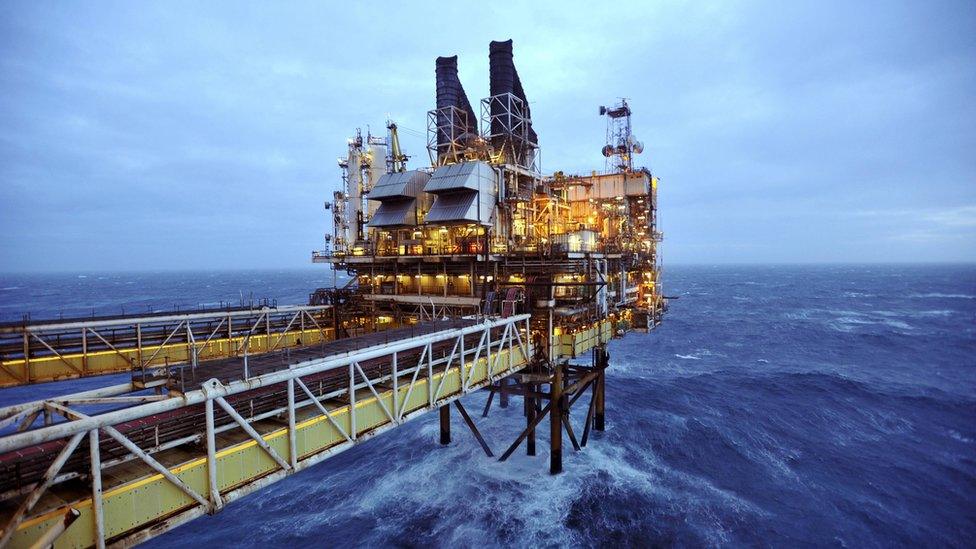Centrica to sell its shares in Spirit Energy
- Published

A controlling stake in one of the biggest oil and gas firms in UK waters is being put up for sale.
Centrica is selling its 69% share in Spirit Energy, as it seeks to focus on turning around its troubled core business in energy retail.
Spirit Energy, which has 800 staff and a major base in Aberdeen, is reckoned by industry analysts to be worth more than £1.5bn.
Its annual production from offshore fields in UK, Norwegian, Dutch and Danish waters, runs to about 50 million barrels of oil or its gas equivalent.
The other 31% is owned by Stadtwerke München and Bayerngas GmbH.
Fossil fuels
Centrica, which was government-owned until 1986, was an early entrant into gas production in UK waters, developing a field in Morecambe Bay.
It sought to secure upstream supplies of gas by expanding its exploration and production in the North Sea.
It has also been at the forefront of moves to exploit the Greater Warwick area, to the west of Shetland.
But problems with its core business in retail have seen its departing chief executive Iain Conn, announce that it is to simplify what it does and further cut costs.
Presenting half year results that sparked a dive in the company's share price by 17%, he said the move to sell the stake in Spirit Energy was also to remove Centrica from controversy around fossil fuels.
Heavy debts
It is also being reported that the state-controlled Korean energy firm that owns Dana Petroleum, headquartered in Aberdeen, is finding it difficult to sell a stake in the exploration and production subsdiary.
The Korean National Oil Corporation (KNOC), with heavy debts, is understood to have been seeking a buyer for a 30% stake in Dana, which it took over in 2011.
However, given its state ownership model, it has found it hard to find a buyer. Reuters has reported that KNOC is considering an increase of the stake being sold to 49%.
It further said that the parent company was looking to potential interest from other national firms including Samsung Heavy Industries, which could benefit from supplying floating oil production vessels.